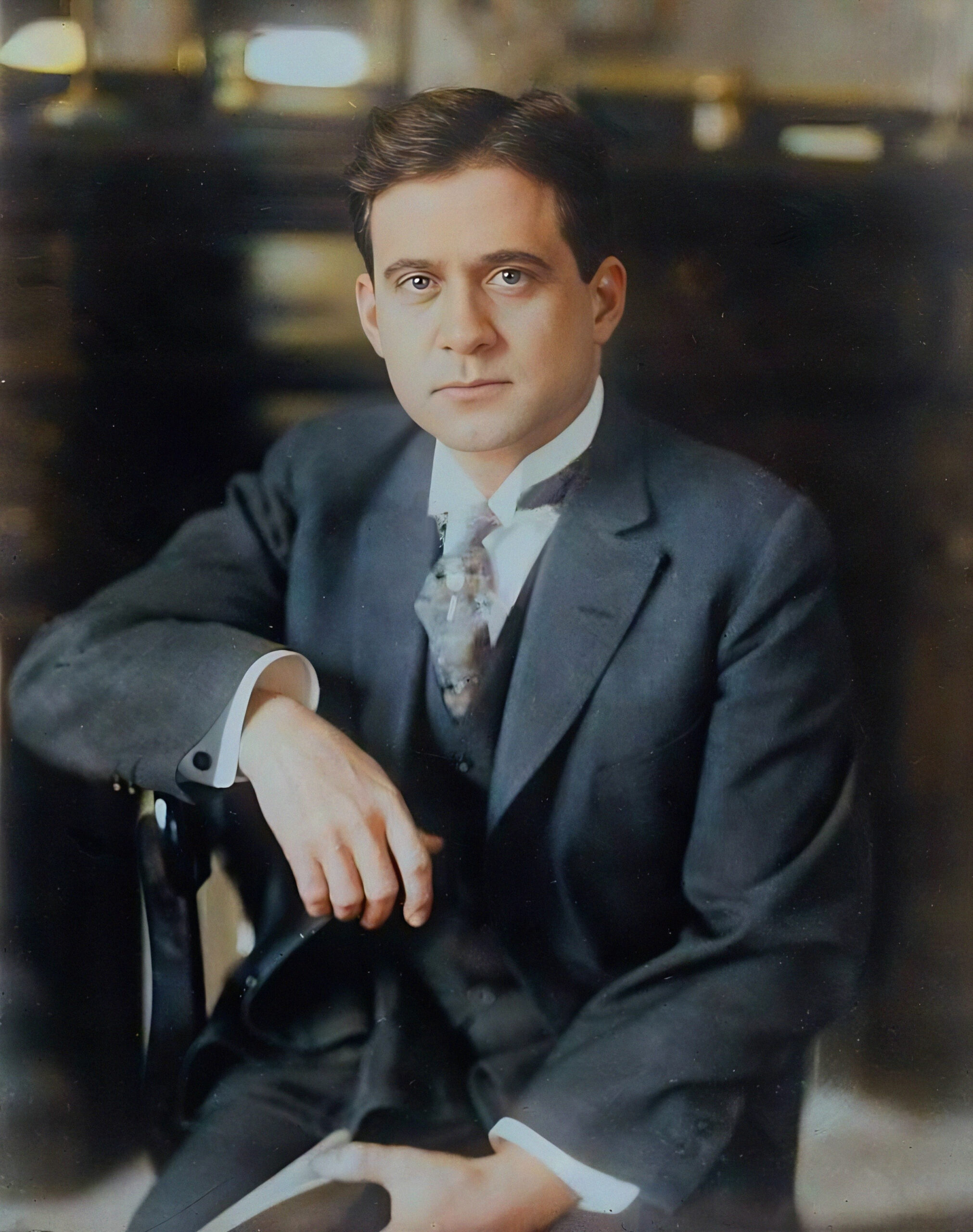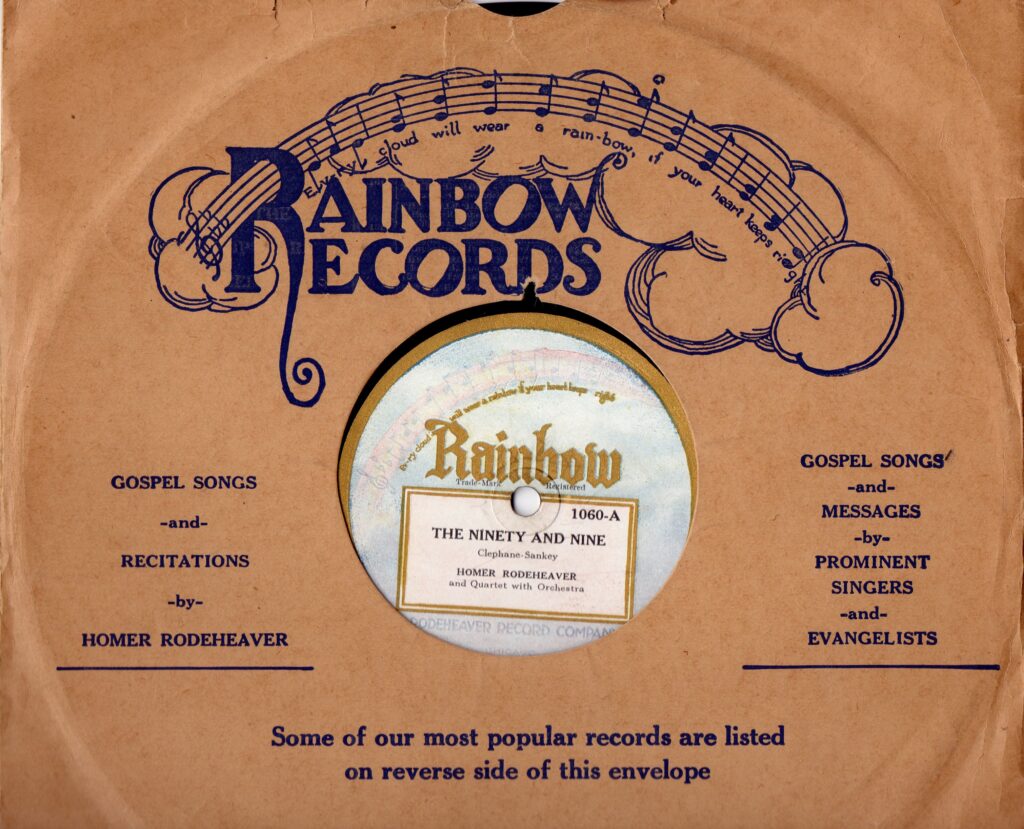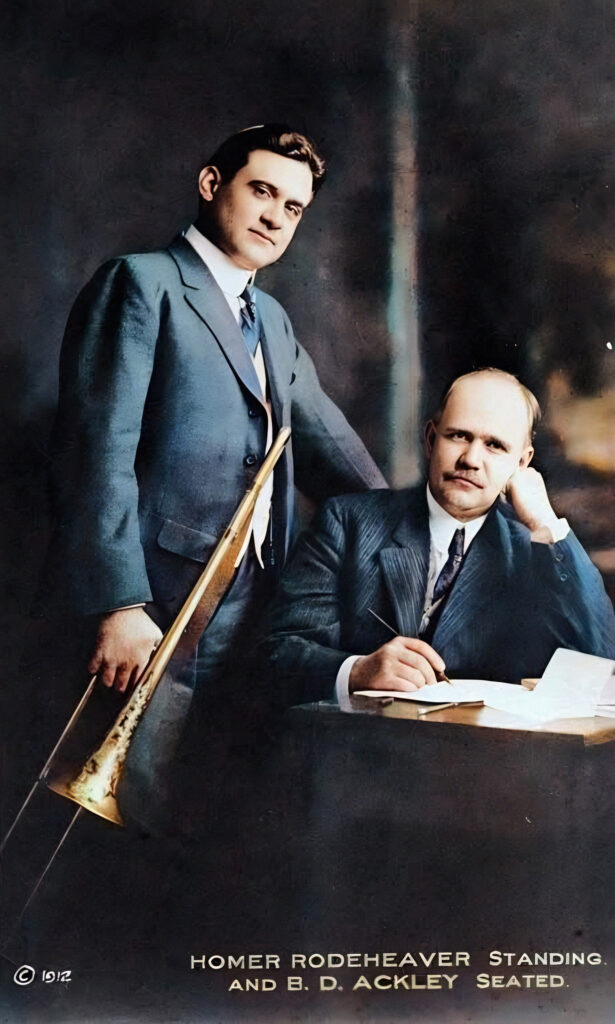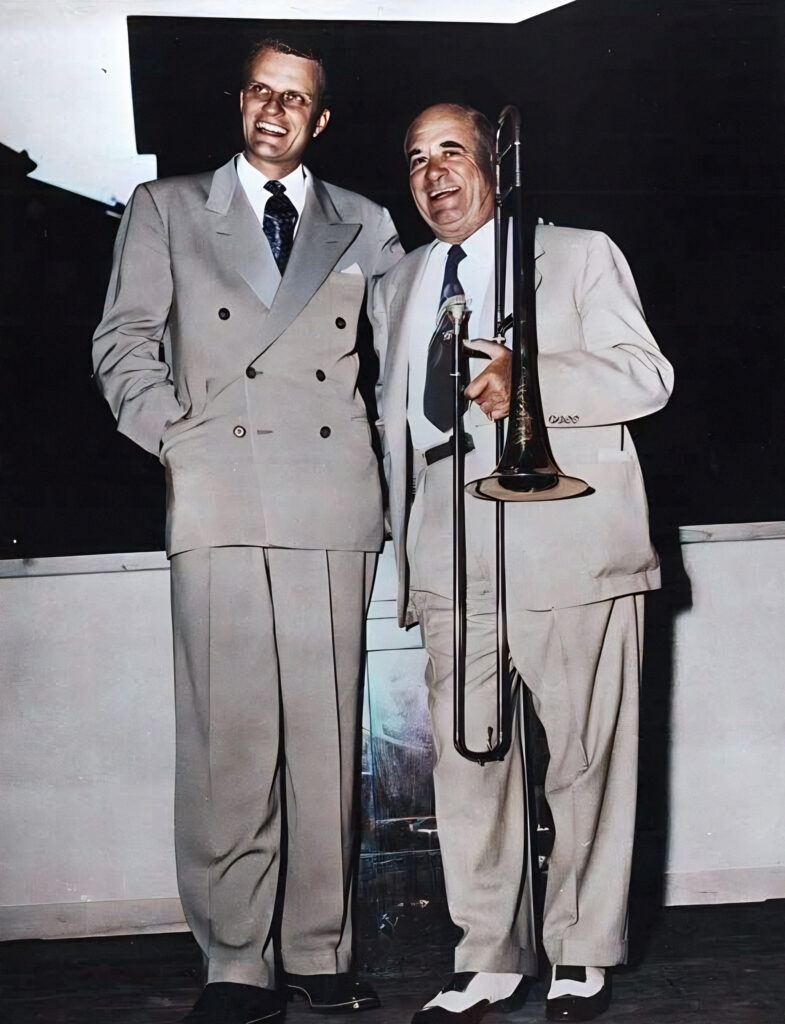In the early 20th century, as revival meetings swept across America, one man’s entrepreneurial spirit and love for music would lay the foundation for what would become today’s multi-billion dollar Christian music industry. Homer Rodeheaver, known to many as the trombone-playing song leader for evangelist Billy Sunday, was more than just a charismatic performer. He was a visionary who recognized the potential of gospel music as both a spiritual tool and a commercial enterprise. Through his publishing and recording companies, Rodeheaver paved the way for the modern Christian music industry, creating a blueprint that would be followed and expanded upon for generations to come.
From Hymnal Salesman to Music Mogul
Homer Rodeheaver’s journey into the heart of the gospel music industry began long before he became a household name in the early 20th century. As a young man at Ohio Wesleyan University, he honed his skills not only in music but also in the art of salesmanship, going door-to-door selling hymnals. This early experience would prove invaluable, giving him insight into what songs resonated with people and how to market them effectively.
By 1908, Rodeheaver had made connections with the influential circle of gospel music publishers in Chicago. This network became the springboard for his future success, allowing him to understand the intricate relationship between popular songs and their commercial potential. Chicago, at that time, was buzzing with new developments in copyright law, royalty payments, and music licensing, including the formation of ASCAP. Rodeheaver astutely observed how gospel songwriters were becoming professionals, borrowing business models from Tin Pan Alley.
The Billy Sunday Years: A Launching Pad for Success
In 1910, Rodeheaver’s career took a significant turn when he joined forces with Billy Sunday, the most prominent evangelist of the era. This partnership would last for two decades and provide Rodeheaver with an unparalleled platform to promote and sell music.
During the massive revival meetings, which often attracted crowds of 10,000 or more, Rodeheaver would lead the singing and then conveniently have songbooks available for purchase afterward. He quickly realized that the songs that moved people during the services were the ones they wanted to take home with them.
One song, in particular, became the anthem of these revival meetings and a showcase of Rodeheaver’s business acumen. “Brighten the Corner Where You Are” was recorded dozens of times, performed thousands more, and became a staple in Rodeheaver’s repertoire. Its popularity demonstrated the power of combining a catchy tune with an inspirational message – a formula that would define much of the gospel music industry’s future output.
Building a Publishing Empire
Recognizing the potential for a dedicated gospel music publishing business, Rodeheaver founded the Rodeheaver Company in 1910. This venture would grow to become one of the most successful publishers of Christian songbooks and hymnals in the modern era.
Rodeheaver had an uncanny ability to identify songs that would resonate with congregations. He acquired the copyrights to some of the most beloved gospel songs of the time, including “The Old Rugged Cross,” “In the Garden,” and “Stand Up, Stand Up for Jesus.” These acquisitions formed the backbone of his publishing catalog and ensured a steady stream of income.
In 1936, Rodeheaver expanded his empire by purchasing the Hall-Mack Company and merging it with his own publishing house. The new entity, headquartered in Winona Lake, Indiana, became a powerhouse in the industry. Rodeheaver didn’t just rely on existing material, though. He employed talented songwriters such as B.D. Ackley and Charles H. Gabriel to create new works for his company. Rodeheaver himself composed several tunes, with “When Jesus Came” being his most famous “hit.”
Pioneering in Recorded Gospel Music
As the recording industry began to take shape, Rodeheaver was quick to recognize its potential for spreading gospel music beyond the revival tent. He became one of the first major religious artists to embrace this new technology, recording for various labels and eventually founding his own.
In 1922, the Rodeheaver Company took a bold step by launching Rainbow Records, the nation’s first record label devoted solely to gospel music. This move was revolutionary, providing a dedicated platform for gospel artists and further cementing Rodeheaver’s role as an industry pioneer.
Rainbow Records released a variety of material, including vocal and trombone solos by Rodeheaver himself, as well as recordings by other artists. While the label was relatively short-lived, operating until about 1926, it set a precedent for future Christian record labels and demonstrated the viability of a market for recorded gospel music.
Embracing New Technologies
As radio emerged as the next big thing in media, Rodeheaver once again demonstrated his adaptability and foresight. He quickly embraced this new medium, understanding its potential to reach even larger audiences with gospel music.
Rodeheaver’s radio appearances helped to further popularize the songs in his catalog and introduced his music to listeners who may never have attended a revival meeting. This expansion into broadcasting foreshadowed the crucial role that radio would play in the promotion and distribution of Christian music in the decades to come.
While Billy Sunday remained skeptical of new technologies, Rodeheaver saw their potential. He ventured into network radio and even film, attempting to apply his ideas about community singing to these new mediums. His early-adopter attitude toward technology significantly broadened the scope of the gospel music industry.
A Global Vision for Gospel Music
Rodeheaver’s ambitions weren’t limited to the United States. He called gospel music “the universal language” and aggressively promoted it to an international audience as a form of missionary outreach. This global perspective helped to expand the reach and influence of American gospel music far beyond its original borders.
A Legacy of Innovation and Influence
Homer Rodeheaver’s impact on the gospel music industry cannot be overstated. His business model, which integrated publishing, recording, and live performance, created a template that many Christian music companies would follow in the future, and continue using today.
By the time of his death in 1955, Rodeheaver had built a musical empire that touched nearly every aspect of gospel music production and distribution. His company had published over 280 different publications, sold millions of songbooks, and produced countless recordings. Throughout his career, Rodeheaver’s influence reached far and wide. His trombone performances touched the lives of an estimated 100 million people, a staggering figure that underscores the breadth of his impact on American religious and musical culture.
The influence of Rodeheaver’s work extended far beyond his lifetime. In 1969, the Rodeheaver Company was acquired by Word Music, one of the largest Christian music companies of the late 20th century. This acquisition helped to bridge the gap between the early days of gospel music publishing and the modern Christian music industry.
While the popularity of tabernacle revivalism declined in his later years, and younger generations began to move gospel music from its communal roots to a more performance-based idiom, Rodeheaver’s influence persisted. He befriended the young Billy Graham and Graham’s trombone-playing song leader, Cliff Barrows, strongly influencing their methods for large-scale evangelistic meetings.
Today, as we attend worship services filled with contemporary praise music or stream the latest release from our favorite Christian artist, we are experiencing the fruits of seeds planted by Homer Rodeheaver over a century ago. His vision of gospel music as both a ministry tool and a viable commercial enterprise laid the groundwork for an industry that continues to thrive and evolve.





